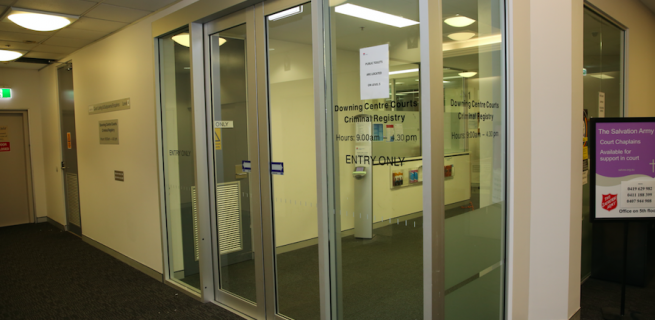All local courts have a court registry that is staffed with trained court registrars. A court registrar is an employee of the local court who is trained to deal with a number of administrative and clerical court matters, including preparing court lists, filing and keeping track of court-related documents, helping members of the public with queries, and filing and lodging legal forms.
The court registry is a place where you can go to file forms and deal with certain legal matters, but it is important to know that registry staff are not trained legal professionals and can’t offer legal advice. There are a number of different things that registry staff can help you with, and these include:
Apprehended Violence Orders
If you want to apply for an Apprehended Violence Order (AVO) against another person, you can do it at the court registry by filling out a form and lodging it with the staff. The staff will prepare the necessary documentation to be served on the person you are taking the AVO out against and give you a court date for the matter to be dealt with.
If you want to commence civil proceedings
If you want to start a civil proceeding against someone else, the Court Registry staff can help you prepare and lodge the necessary documentation. It is important to remember that registry staff can’t help with a complex matter or give legal advice, and it is always a good idea to speak to a lawyer before you commence legal proceedings.
Lodging forms
Not all legal matters require a court appearance. In some cases, you may be required to lodge a form at the local court and the registrar’s office is where you go to do it. If you want to submit a written notice of pleading or appeal a conviction or a sentence you feel is overly harsh, the registry staff can help you fill out the form and make sure it is officially lodged. As time is often an issue when it comes to lodging court-related documentation, it is important to ensure that any forms you fill out are complete and correct, and the court staff can help you make sure they are.
Family law applications and orders
In some cases, the court registrar can help with the preparation and commencement of family law applications. In remote areas, it is in some situations possible for court registry staff to undertake family law recovery orders, especially if there is no other service available to do it.
If you aren’t sure where to go
There is usually a court registrar on duty from when the court opens in the morning. If you are attending court that day and aren’t sure where to go, the registrar can direct you and give you any information you need about the rules for appearing in court.
Court Registries provides an important service for people who are attending court or facing other legal matters. If you are due to attend court it is a good idea to visit beforehand and familiarise yourself with the layout of the court house and the location of the court registry in case you have any questions on the day.











